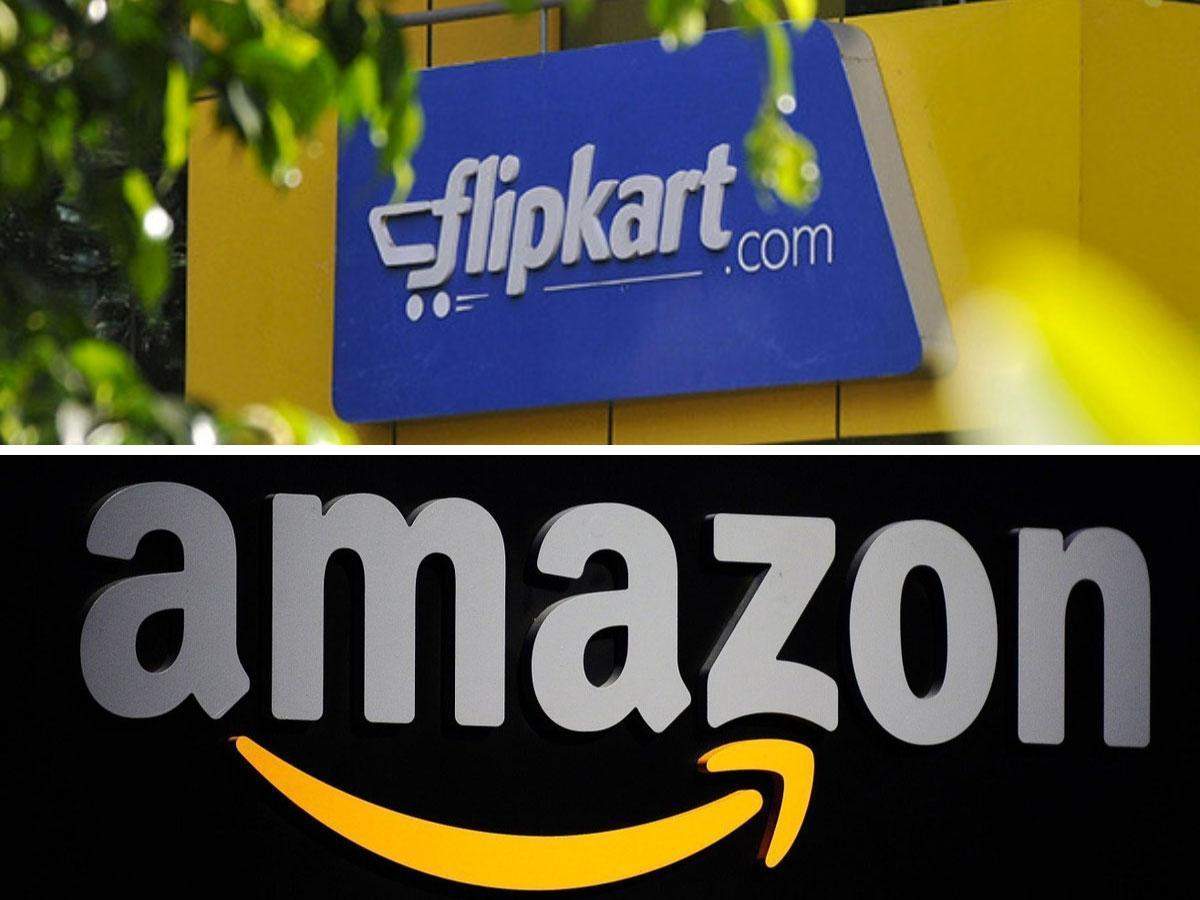Chinese investor may exit Delhivery; Thrasio eyes India foray
Also in this letter:
Thrasio in talks to acquire Lifelong OnlineCrypto payments slowly gain ground inIndia - Amazon-Flipkart sales battle off to a strong start
Chinese investor dilutes stake in

China’s
Delhivery was valued at around $3.2 billion in the primary round, while the secondary share sale took place at a significantly higher price. In a secondary share sale, the money does not flow into the company directly but goes to the
Details: Sources with direct knowledge of the developments told us that:
- Fosun, which held around 3.8% in Delhivery, has sold 1.32% of its stake.
- Addition invested $75 million in primary capital, while the rest — $50 million — was in the form of a secondary transaction.
- Fosun is looking to offload its entire stake ahead of Delhivery’s proposed IPO and may do so during the offer for sale (OFS) prior to its listing.
Delhivery had raised Rs 200 crore ($30 million) from Fosun International as part of a larger funding round in 2017, which valued the company at $650 million at that time. In June, it said it had raised $275 million from investors led by GIC and Fidelity. Two months later, it secured $100 million from strategic investor FedEx Express.
Bonus shares: Meanwhile, Delhivery has issued bonus shares as it prepares to file its draft prospectus with the capital markets regulator, documents showed.
- According to filings with the Ministry of Corporate Affairs on Sunday, which we accessed, the company said it had decided to allot 16.8 million bonus shares to equity shareholders in the ratio of 9:1 at an extraordinary general meeting (EGM) on September 29.
- Around 90 individuals and entities will receive these bonus shares, the documents showed. The company will also allot more stock options to eligible past and current employees.
IPO plans: Delhivery is expected to file its draft IPO prospectus in the coming weeks and make its public market debut later this fiscal. It is looking to raise $1 billion and is targeting a valuation of $6-$7 billion.
Disclaimer: Times Internet, part of The Times of India Group which also publishes The Economic Times, is an early investor in Delhivery.
Thrasio eyes India entry, in talks to acquire Lifelong Online

Thrasio, the US-based firm that pioneered the business model of acquiring private brands on
It also plans to invest as much as $500 million in India, having identified the country as one of the largest available consumer markets.
First India bet: Sources told us Thrasio has held talks with consumer durables brand Lifelong Online for a $30-50 million acquisition. It plans to use Lifelong Online as the vehicle for its India business, the sources added.
Lifelong Online sells consumer durables in segments such as kitchen, grooming, home appliances, fitness, lifestyle and accessories. Sources told us its monthly peak sales have been in the range of Rs 40-50 crore.
Tanglin Ventures, an early-stage venture fund backed by Udaan cofounder Sujeet Kumar and
“The acquisition… should be closed in another month or so,” one of the sources said.
Inspiration to competition: Several startups in India are seeking to replicate Thrasio’s model here. They have raised hundreds of millions in funding over the past few months as direct-to-consumer brands — and ecommerce in general — have grown in popularity amid the pandemic.
Prominent Thrasio-style Indian startups include:
Industry sources aware of the matter said these startups, which have raised significant risk capital, are also in various stages of making other acquisitions and Thrasio’s entry would further shake up the space.
D2C’s Big Bang: D2C brands are finding growing acceptance among consumers, and it shows. We reported in August that the broader D2C space has seen a funding boom, with 146 firms raising a combined $500 million since the start of 2020. That’s almost the same amount they raised in the previous five years. According to a report by Avendus Capital, D2C will be a $100 billion market opportunity by 2025.
Crypto payments slowly gain ground in India

Bitcoin and other cryptocurrencies are being used to buy goods and services — such as Fastag recharges — in India.
What’s happening? A small but growing number of businesses in the country are allowing customers to pay for goods and services with virtual currencies such as Bitcoin, Ethereum, Solana and others.
Examples: India’s oldest crypto exchange, Unocoin, allows its users to recharge their Fastag accounts using Bitcoin. It is also allowing Bitcoin transactions for bill payments and e-commerce.
Raghav Gupta, director of The Rug Republic, an Indian decor brand that sells home decor items, said the company wants to show regulators that there is support for crypto from the Indian business community.
Is this legal? In the absence of any law specifying treatment of cryptocurrency, legal experts said the use of cryptocurrency for payments in India is neither legal nor illegal. This has not deterred businesses or customers from allowing such transactions.
Legal experts said that a lack of relevant statutes makes such transactions akin to barter deals, where the acceptance is purely at the discretion of the recipients.
Amazon-Flipkart ‘battle of the sales’ off to a good start

The flagship sale events of both Walmart-backed Flipkart and Amazon India are said to have begun well, according to early trends on Sunday as well as during the early-access period for subscribers of their loyalty programmes.
Both online retailers started their flagship sales — Big Billion Days (Flipkart) and the Great Indian Festival (Amazon) — on a Sunday, when consumers typically spend more time on these platforms.
Brisk business: A senior industry analyst who is tracking the sales said the Flipkart Group, including its fashion portal Myntra, is expected to clock gross sales of $4-$4.5 billion during the festive month, while Amazon India will hit $4 billion.
Forrester Research previously said that the e-tailers could clock a record $9.2 billion in gross sales during the festive month starting October 3 and that 70% of this would come over the next week.
Ecommerce battle: By switching dates and eventually settling on the same starting day for their sales, the two ecommerce giants have set the stage for an intense battle in the festive period, signalling a clear unwillingness to concede any ground.
Flipkart has also expanded its grocery business quickly before the flagship event, as Amazon India has been focusing on groceries for a while now.
ETtech Opinion: Inside the life of a VC

Aviral Bhatnagar, founder, A Junior VC
I belong to a mysterious species. Venture capitalists, or VCs, invest in startups when they are just an idea and a team. We VCs prefer to be behind the scenes. This is to avoid people asking us “What do you really do?”
But people ask anyway.
How do you decide which companies to invest in? Why do you invest in loss-making firms? How can you help a startup? When do you make money? The first one especially irritates a lot of VCs.
I am A Junior VC (@ajuniorvc) on Twitter and still closer to 20 than 40. I have the enviable job of partnering with future billion-dollar companies or “unicorns”. I also have the unenviable job of missing many of these unicorns.
Click here to read the full column.
Other Top Stories We Are Covering
VMware to step up focus on SaaS model: US cloud computing and virtualisation technology company VMware will step up focus on the Software as a Service (SaaS) model with India being the talent hub to enable a quick transition, its India-born chief executive Raghu Raghuraman told ET.
RBI’s auto debit rule could cause tax woes for fintech startups: The Reserve Bank of India’s (RBI) auto debit rule could bring tax complications for fintech companies that have set up platforms for banks to integrate with a common e-mandate platform to ensure compliance.
Tech’s driving a crash (avoidance) course: More lives can be saved if technology is used to predict road accidents even before they occur. The ability to collect driving and accidents-related data in a digital format is slowly helping everyone in the ecosystem make roads a safer place.
Glance starts live streaming shows: InMobi-owned content platform Glance has started live streaming shows, as it looks to monetise the lock screen real estate through social commerce, advertising, and building a virtual economy.
For all the latest Technology News Click Here

